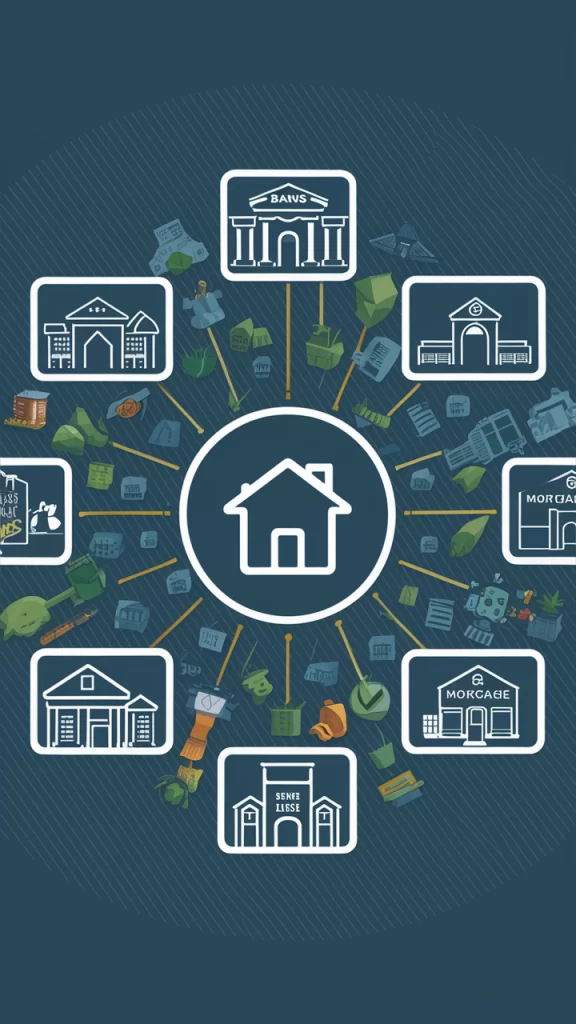
Airbnb Guest: A Host’s Guide to a Memorable Start
Facebook Twitter LinkedIn Reddit Email WhatsApp Welcome Your First Guest on Airbnb: A Host’s Guide to a Memorable Start Welcoming your first guest on Airbnb
Selecting the right mortgage lender is one of the most critical decisions you’ll make in your home-buying journey. The lender you choose will not only determine your mortgage rates but also influence the overall experience of securing a loan. With so many options available, from big banks to online lenders, it can be overwhelming to know where to start.
Before you begin searching for a mortgage lender, it’s essential to have a clear understanding of your financial situation. Knowing your credit score, income, debt-to-income ratio, and the amount of down payment you can afford will help you identify which lenders are most likely to offer you favorable terms.
There are various types of mortgage lenders, each offering different products and services. Understanding the differences can help you narrow down your options.
Banks: Traditional banks often provide a wide range of mortgage products and may offer competitive rates, especially if you already have a relationship with them.
Credit Unions: These member-owned institutions often offer lower rates and fees, but you’ll need to be a member to qualify.
Mortgage Brokers: Brokers act as intermediaries between you and lenders, shopping around for the best deal on your behalf.
Online Lenders: These lenders typically offer a streamlined application process and can be more convenient for tech-savvy borrowers.
Tip: Consider what’s most important to you—whether it’s personalized service, the lowest rate, or a fast and easy application process.

Interest rates are a crucial factor in choosing a mortgage lender, as they directly affect your monthly payments and the total cost of the loan over time. However, it’s also important to consider the loan terms, such as the length of the loan and whether it’s a fixed or adjustable-rate mortgage.
A lender’s reputation can tell you a lot about the quality of service you can expect. Look for reviews and testimonials from previous customers to see how the lender handles the mortgage process, including communication, transparency, and customer support.
The mortgage process can be complicated and stressful, so it’s important to work with a lender who offers excellent customer service. Pay attention to how responsive and helpful the lender is during your initial inquiries, as this is often indicative of how they will handle the rest of the process.

In addition to the interest rate, you’ll also need to consider the fees and closing costs associated with the mortgage. These can include origination fees, appraisal fees, and other charges that can add up quickly.
Getting pre-approved for a mortgage can give you a better idea of how much you can borrow and what interest rate you’re likely to receive. It also shows sellers that you’re a serious buyer, which can be an advantage in competitive markets.
Life is unpredictable, and your financial situation could change during the life of your mortgage. Look for a lender who offers flexibility, such as the ability to make extra payments, adjust your payment schedule, or refinance your loan in the future.
“Real estate cannot be lost or stolen, nor can it be carried away. Purchased with common sense, paid for in full, and managed with reasonable care, it is about the safest investment in the world.”
– Franklin D. Roosevelt Tweet
Choosing the right mortgage lender is about more than just finding the lowest interest rate. It’s about finding a partner who will guide you through one of the biggest financial decisions of your life with transparency, integrity, and excellent customer service. By understanding your financial situation, researching different types of lenders, and comparing offers, you can make an informed decision that sets you up for long-term success in your homeownership journey.

Facebook Twitter LinkedIn Reddit Email WhatsApp Welcome Your First Guest on Airbnb: A Host’s Guide to a Memorable Start Welcoming your first guest on Airbnb

Facebook Twitter LinkedIn Reddit Email WhatsApp Mastering Airbnb Policies and Legal Requirements: A Guide for Hosts If you’re considering hosting on Airbnb, understanding the platform’s

Facebook Twitter LinkedIn Reddit Email WhatsApp The Anatomy of a Perfect Airbnb Listing Creating an irresistible Airbnb listing is both an art and a science.